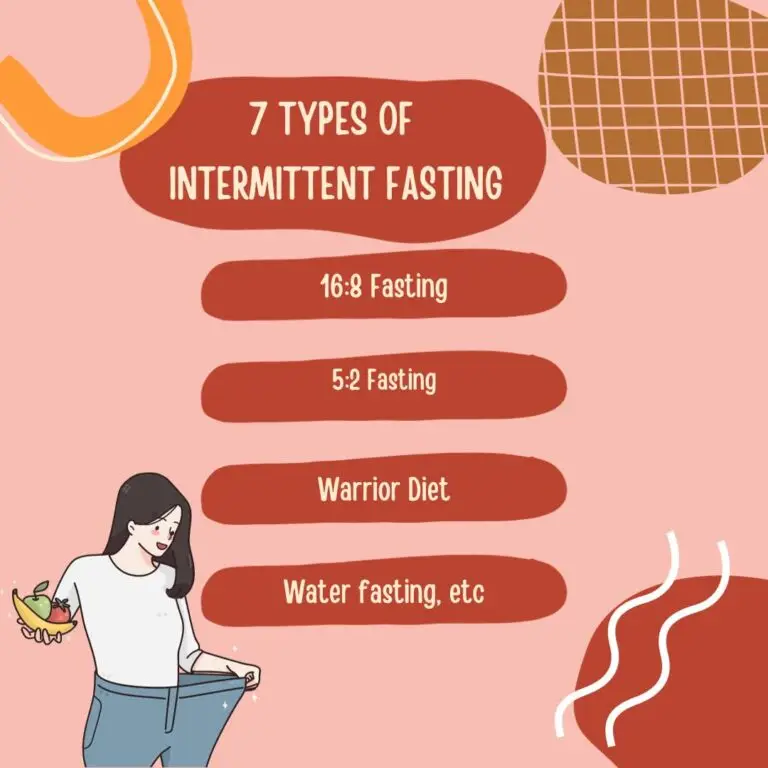Lose Weight by Intermittent Fasting: 13 Science-Based Reasons That Work!
Do you find it difficult to lose weight despite attempting numerous diets and exercise routines? Have you heard of intermittent fasting but are unsure if it is appropriate for you? In this essay, we will look at how intermittent fasting can be an effective and long-term approach to Lose Weight by Intermittent Fasting and enhance your overall health.
Table of Contents

Lose Weight by Intermittent Fasting, how does it work?
Intermittent fasting creates a calorie deficit, which is required for weight loss. When you fast, you limit the amount of hours you can eat. This naturally leads to a decrease in food consumption, resulting in a calorie deficit that helps your body to burn stored fat for energy.
Intermittent Fasting Types
There are various routes of intermittent fasting, but the most prevalent are as follows:
- 16:8 method: This entails fasting for 16 hours and eating for 8 hours each day. For example, you may eat from noon to 8 p.m. one day and then fast from 8 p.m. to noon the next.
- 5:2 diet: This entails eating regularly five days a week and limiting calories to 500-600 on two non-consecutive days.
- Alternate day fasting: Alternate day fasting requires alternating between fasting and eating regularly.
- Other types of fasting: Warrior diet, Water Fast, Dry Fast, Prolonged Fasting, etc
Seven Science-Based Ways Intermittent Fasting Aids Weight Loss
Boosting Metabolic Rate: How Fasting Increases Your Metabolism
Intermittent fasting can improve hormonal function, which boosts metabolic rate. During fasting, growth hormone levels rise while insulin levels fall, which might raise metabolic rate and make energy stores more available. This shift not only helps to burn more calories, but it also boosts energy levels while fasting.
Enhancing Hormone Function: Effects on Insulin and Growth Hormone
Intermittent fasting has a substantial impact on hormonal balance, which is important for effective weight management. Lower insulin levels during fasting improve insulin sensitivity, resulting in greater glucose and fat metabolism. Simultaneously, elevated levels of growth hormone encourage not just fat reduction but also muscle gain, hence increasing overall metabolic rate.
Targeting Fat Loss, Not Muscle: Maintaining Muscle Mass
Unlike many diets that cause muscle loss owing to a calorie deficit, intermittent fasting has been demonstrated to protect muscle mass when combined with resistance training. This is due in part to increased levels of growth hormone, which aid in the preservation of muscle tissue, as well as the body’s better capacity to burn fat for energy while sparing muscle protein.
Reducing Caloric Intake Naturally: Decrease Hunger Through Fasting
Intermittent fasting causes a natural reduction in calorie intake. Limiting the window of time when you can eat makes dietary control easier and naturally leads to less calories ingested, as long as you don’t compensate by overeating within acceptable eating periods. Furthermore, fasting can alter levels of leptin, the satiety hormone, and ghrelin, the hunger hormone, so reducing total appetite.
Improving Gut Health: Benefits for Your Digestive System
Fasting intervals allow your gut to rest from the constant effort of digesting food, which can aid in the maintenance and repair of its lining. This not only improves general digestive health, but it can also result in greater nutrient absorption and a healthier microbiota, all of which contribute to lower inflammation and better health.
Increasing Fat Oxidation: Moving Energy from Carbohydrates to Fats
When the body’s glucose reserves are depleted during fasting, it begins to break down fats for energy. This process, known as fat oxidation, is accelerated in the absence of blood sugar from food. Intermittent fasting, when combined with exercise, can result in enhanced fat loss.
Promoting Longevity and Improved Health: Long-Term Health Advantages
Intermittent fasting is beneficial not only for weight loss, but also for long-term health. According to studies, fasting activates mechanisms such as reduced oxidative stress and higher autophagy, which contribute to better ageing and longevity. Furthermore, IF has been related to a lower risk of chronic diseases such type 2 diabetes, heart disease, and several malignancies.
Six Additional Ways by Which Intermittent Fasting Can Aid with Weight Loss
Reduced Calorie Intake: lowering daily caloric consumption.
Intermittent fasting simplifies calorie reduction by limiting the time window for eating each day or week, resulting in less calories consumed. Without the need to rigorously calculate calories, people frequently wind up decreasing their overall caloric intake since they have less time to snack.
Improved Insulin Sensitivity: Increasing the body’s response to insulin.
Intermittent fasting increases insulin sensitivity, which is essential for weight management. Allowing insulin levels to dip during fasting periods helps the body become more efficient at using stored fat for energy rather than relying on sweets from recent meals. This is especially advantageous for those with insulin resistance or type 2 diabetes, as it helps to better regulate blood sugar levels.
Increased Fat Burning: Boosting Fat Oxidation Rates
As the body’s glucose reserves diminish during extended fasting periods, it switches to stored fats for energy, a process known as ketosis. Intermittent fasting speeds the transition from using available glucose to breaking down stored fat, increasing fat oxidation and facilitating greater weight loss.
Reduced Inflammation: Decreased systemic inflammation.
Intermittent fasting has been demonstrated in studies to reduce inflammation indicators, which is not only useful for lowering the risk of chronic diseases but also helps with weight loss. Chronic inflammation can interfere with leptin, a hormone that regulates appetite and energy expenditure. Fasting may enhance leptin sensitivity by lowering inflammation, allowing for better weight regulation.
Increased Metabolism and Human Growth Hormone (HGH): Enhancing Metabolic Health and Growth Hormone Levels
Fasting improves metabolism by raising HGH levels, which are essential for health, fitness, and slowing the ageing process. Higher HGH levels promote fat loss and muscle growth, increasing metabolic rate. This hormone also promotes cellular repair and regeneration, resulting in a more youthful metabolic profile.
Getting Started with Intermittent Fasting
Of course, intermittent fasting is not a miracle weight loss solution, and it is critical to approach it as part of a well-balanced and healthy lifestyle. Here are some pointers to help you get started with intermittent fasting:
- Begin slowly: Choose a fasting method that works for you: There are several approaches to intermittent fasting, so choose one that fits your lifestyle and preferences. If you are new to fasting, start with a shorter period of fasting, such as 12 hours, and gradually increase the duration over time.
- Stay hydrated: It is critical to stay hydrated during fasting times by consuming plenty of water, herbal tea, or other non-caloric liquids.
- Eat nutrient-dense foods: When you do eat, choose nutrient-dense, whole meals that will supply your body with the nutrition it requires to thrive.
- Have patience.
Conclusion
Intermittent fasting (IF) is recognised not only as a weight loss technique, but also as a strong tool for improving general health. By strategically scheduling your meals and incorporating fasting periods, you can activate a variety of biological mechanisms that aid in weight loss, including reduced calorie intake, improved insulin sensitivity, increased fat burning, and decreased inflammation. Furthermore, IF stimulates human growth hormone and metabolism, both of which are essential for maintaining and increasing general health.
The benefits of IF go beyond the physical, with considerable increases in metabolic health and possibly longevity. Whether you want to lose a few pounds, improve your metabolic health, or simply adopt a sustainable eating pattern that fits with your busy lifestyle, intermittent fasting provides a versatile method with proven results.
Starting intermittent fasting can be as simple as extending your overnight fast by a few hours or selecting a fasting schedule that suits your lifestyle, such as the 16/8 technique or the 5:2 diet. Remember to listen to your body and make changes based on your health needs and how you feel. It is recommended that you contact with a healthcare expert before making any dietary changes, especially if you have underlying health issues.
We encourage you to think of intermittent fasting as more than just a diet; it can help you live a healthy lifestyle. With its simplicity and dramatic influence on your body and mind, intermittent fasting may be the key to unlocking a healthier, more vibrant self.
Frequently Asked Questions
u003cstrongu003eHow much weight can I lose in a month with intermittent fasting?u003c/strongu003e
Weight loss with intermittent fasting varies, but many people can expect to lose 2 to 6 kilograms (4 to 13 pounds) per month, depending on their starting weight, diet, and activity level.
u003cstrongu003eHow to lose 2kg in a week with intermittent fasting?u003c/strongu003e
To lose 2 kg in a week, combine intermittent fasting with a calorie deficit (reduce calorie intake by 500 to 750 calories per day) and increase physical activity. Ensure that the diet is balanced and nutritious.
u003cstrongu003eWhat is the fastest way to lose weight with intermittent fasting?u003c/strongu003e
The fastest way to lose weight with intermittent fasting involves combining it with a healthy, calorie-restricted diet and regular exercise, particularly high-intensity interval training (HIIT).
u003cstrongu003eIs it better to fast 12 or 16 hours?u003c/strongu003e
A 16-hour fast is generally more effective for weight loss and metabolic health improvements than a 12-hour fast. The longer fasting window allows for a greater duration of fat burning and insulin reduction.
u003cstrongu003eHow long does it take to lose 10 kg with intermittent fasting?u003c/strongu003e
Losing 10 kg can take between 2 to 5 months with intermittent fasting, depending on individual factors like dietary habits, daily calorie intake, exercise, and metabolic rate. Consistency and a balanced approach are key for sustainable weight loss.








Very interesting information!Perfect just what I was searching for!Blog monetyze
I’m glad to hear the information was exactly what you were looking for! If you have any more questions or need further details on any topic, feel free to ask. Happy fasting!